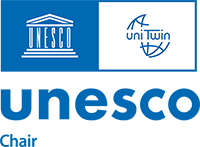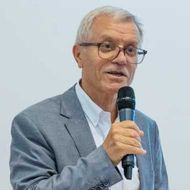- A
- A
- A
- ABC
- ABC
- ABC
- А
- А
- А
- А
- А
- HSE University
- UNESCO Chair on Future Studies
- News
- ‘I Can’t Think of a Better Time for Young Researchers to Work in Foresight’
-
-
Education
-
Science
11 Myasnitskaya St., Moscow
+7 (495) 621-28-73
issek@hse.ru
Meissner D., Zhou Y., Fischer B. et al.
Technological Forecasting and Social Change. 2022. Vol. 178.
Abdrakhmanova G., Vasilkovsky S., Vishnevskiy K. et al.
M.: National Research University Higher School of Economics, 2022.
Saritas O., Burmaoglu S., Ozdemir D.
Futures. 2022. Vol. 137.
Sokolov A., Shashnov S. A., Kotsemir M. N.
In bk.: BRICS Comprehensive Innovation Competitiveness Report 2020. Scientific and technical documentation press, 2021. P. 36-98.

‘I Can’t Think of a Better Time for Young Researchers to Work in Foresight’

Foresight and STI Policy are among the symposium topics of the XXIII Yasin International Academic Conference. How has foresight developed in Canada? How did academic life change during the pandemic? What can early-career foresight researchers expect? The HSE News Service discussed these questions with Jonathan Calof, one of the symposium’s speakers.
The International Academic Symposium ‘Foresight and Science, Technology and Innovation Policy’ started on April 6th as part of the XXIII Yasin (April) International Academic Conference on Economic and Social Development. The event has been organized by HSE University’s Institute of Statistical Studies and Economics of Knowledge (ISSEK).
The symposium examines the best foreign and Russian practices on foresight studies and their application for forecasting scientific, technological and socio-economic development, as well as topics related to the innovative development of Russian resource regions and creative industries.
Jonathan Calof will speak about ‘Evolution of Foresight in Canada with Emphasis on the Federal Government’ at the session ‘Foresight: Best National Practices’ on April 8th. The session will be chaired by Ozcan Saritas, Head of the Laboratory for Science and Technology Studies.
Jonathan Larry Calof is Leading Research Fellow at the HSE ISSEK Foresight Centre Laboratory for Science and Technology Studies. He has been at HSE University since 2016. He is also a full professor of International Business and Strategy at the Telfer School of Management at the University of Ottawa and UNESCO Chair in anticipatory systems for innovation and new ventures.
The HSE News Service talked to Jonathan Calof about his report and current research.
Jonathan Calof
Best Practices from Canada
In looking at the history of foresight in Canada with a focus on the Canadian government, I am going to highlight three types of developments in the Canadian foresight ecosystem. First is the evolution of foresight in the government’s central foresight unit—Policy Horizons Canada—in terms its scope of activities, responsibility, methods/topics, and resources. Second is the development of foresight within Canadian governmental agencies. Third is the growth in the Canadian infrastructure to support foresight, including more training options, more university involvement, the recent UNESCO Chairs appointment, and the evolution of internal support for foresight.
Finally, I will be presenting what the future of foresight in Canada could be by looking at the emergence of anticipatory systems and the significant role of foresight.
Keeping with the anticipatory systems approach, my current research cuts across multiple anticipatory domains, including foresight (with a current project on how foresight can impact senior management decisions), business intelligence/big data (the role of big data and analytics in foreign market selection) and competitive intelligence (work on events for developing market insight). I’ve wrapped up work on collective intelligence (mapping the domain) and anticipatory systems (with a paper on foresight and competitive intelligence within a Moroccan bank).
Academic Research during the Pandemic
In a broad sense, COVID-19 provided opportunities, but also presented some serious difficulties
It enabled me to get together with my research teams around the world more regularly and to conduct interviews remotely. These positive aspects allowed me to accelerate some of my research programmes. Being unable to travel to conferences and research sites saved a lot of time that could then be used to further other projects.
On the other hand, not being able to get together face to face also created problems.
Much of what I do involves connecting to decision-makers, research subjects and colleagues. I have not been able to do this for two years
On one level, I was able to get more work done, more publishing activity. But on the other hand, starting new initiatives that involve creative research topics was difficult.
Foresight as a Research Career of Choice
Foresight, and in particular anticipatory systems thinking, gives students an edge in their jobs and life in general
Applying scientific tools and principles to better understand the external environment is becoming more and more important to organisations of all sizes. Research that helps inform policy for government, industry or other types of organisations has never been more important.
At the end of 2021, Riel Miller (at the time the Head of Foresight Literacy for UNESCO) sent an email to the UNESCO Foresight chairs, saying: ‘Not only are we witnessing a surge in futures ministries and hubs around the world, but Secretary General Guterres recently announced the importance of Futures thinking and work across the UN system.’
I can’t think of a better time for young researchers to work in this field
Jonathan Larry Calof
Leading Research Fellow at the Laboratory for Science and Technology Studies
- About
- About
- Key Figures & Facts
- Sustainability at HSE University
- Faculties & Departments
- International Partnerships
- Faculty & Staff
- HSE Buildings
- HSE University for Persons with Disabilities
- Public Enquiries
- Studies
- Admissions
- Programme Catalogue
- Undergraduate
- Graduate
- Exchange Programmes
- Summer Schools
- Semester in Moscow
- Business Internship
- © HSE University 1993–2025 Contacts Copyright Privacy Policy Site Map
- Edit

